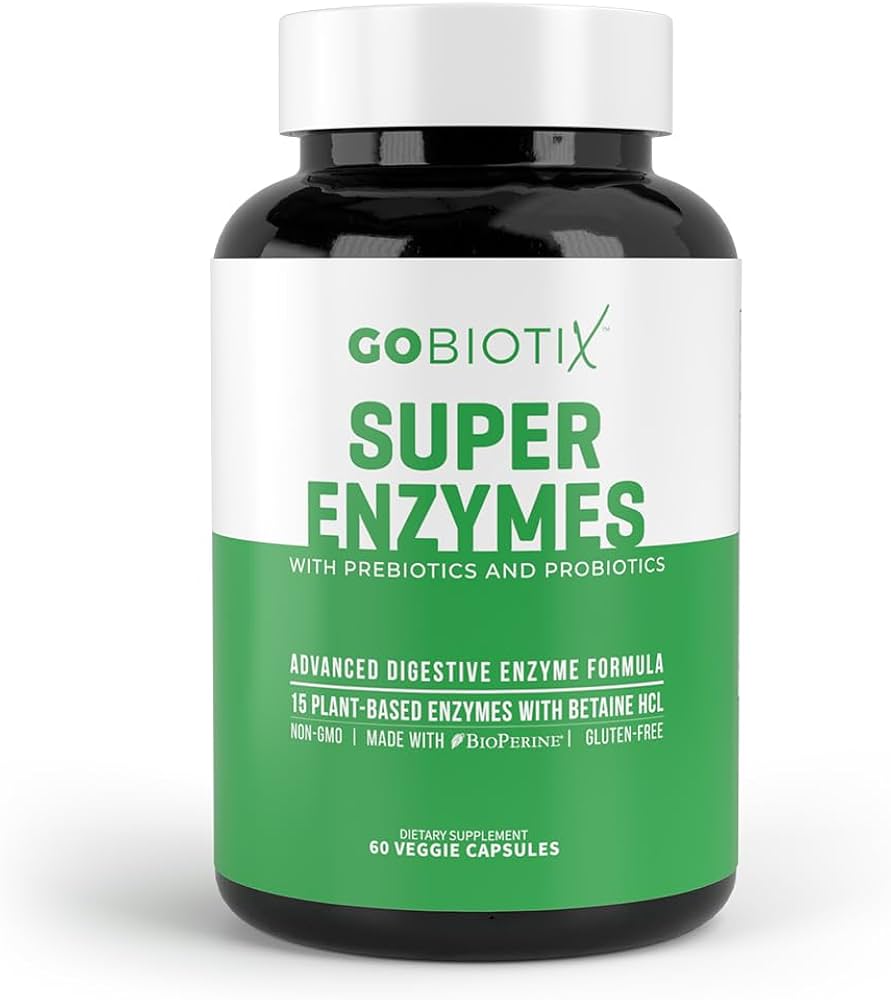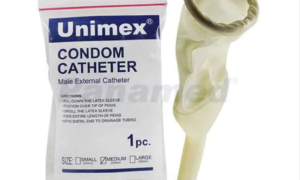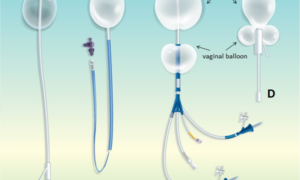Digestive enzymes with probiotics aid in breaking down food and maintaining a healthy gut. They enhance nutrient absorption and improve digestion.
Digestive enzymes and probiotics play crucial roles in the digestive process. Digestive enzymes help break down food into nutrients, making them easier for the body to absorb. Probiotics, beneficial bacteria, support a balanced gut microbiome, promoting overall digestive health. Together, they can alleviate common digestive issues like bloating, gas, and indigestion.
Combining these supplements can enhance gut function, boost the immune system, and improve nutrient absorption. For those experiencing digestive discomfort, a blend of digestive enzymes and probiotics offers a natural solution to support gut health and improve overall well-being. Always consult a healthcare provider before starting any new supplement regimen.
Introduction To Digestive Enzymes
Digestive enzymes play a crucial role in our digestive process. They help break down food into nutrients that our body can absorb. Without these enzymes, we would struggle to get the nutrients we need.
What Are Digestive Enzymes?
Digestive enzymes are proteins found in our digestive system. They speed up the chemical reactions needed to break down food. Enzymes turn food into nutrients like amino acids, fatty acids, and simple sugars.
These nutrients are then absorbed into the bloodstream. This process ensures that our body gets the energy and nutrients it needs.
Types Of Digestive Enzymes
There are several types of digestive enzymes, each with a specific function. Below is a table summarizing the main types:
| Enzyme | Function | Source |
|---|---|---|
| Amylase | Breaks down carbohydrates | Saliva, pancreas |
| Protease | Breaks down proteins | Stomach, pancreas |
| Lipase | Breaks down fats | Pancreas |
Here are some key points to remember:
- Amylase: Converts starches into sugars.
- Protease: Breaks proteins into amino acids.
- Lipase: Splits fats into fatty acids and glycerol.
Our body needs these enzymes to function properly. A lack of these enzymes can lead to digestive problems. Including enzyme-rich foods or supplements can aid digestion.
Role Of Probiotics
Probiotics play a crucial role in maintaining a healthy digestive system. They are live microorganisms that provide numerous health benefits. Probiotics help balance the good and bad bacteria in your gut. This balance is essential for overall health and well-being.
What Are Probiotics?
Probiotics are live bacteria and yeasts beneficial for your digestive system. They are often called “good” or “friendly” bacteria because they help keep your gut healthy. You can find probiotics in supplements and certain foods, such as yogurt and fermented products.
Probiotics work by restoring the natural balance of gut bacteria. They help combat the harmful effects of bad bacteria. This balance is vital for the digestive system to function correctly.
Benefits Of Probiotics
Probiotics offer a range of health benefits, including:
- Improved Digestion: Probiotics help break down food and absorb nutrients.
- Boosted Immune System: They enhance your body’s natural defense mechanisms.
- Reduced Inflammation: Probiotics help lower inflammation in the gut.
- Relief from Digestive Disorders: They can help with conditions like IBS and diarrhea.
- Better Mood: A healthy gut can improve mental health and reduce anxiety.
Including probiotics in your diet can significantly improve your overall health. They support a healthy digestive system and enhance your immune response. Probiotics are essential for maintaining a balanced gut microbiome.
| Probiotic Benefit | Description |
|---|---|
| Improved Digestion | Helps break down food and absorb nutrients. |
| Boosted Immune System | Enhances natural defense mechanisms. |
| Reduced Inflammation | Lowers gut inflammation. |
| Relief from Digestive Disorders | Helps with IBS and diarrhea. |
| Better Mood | Improves mental health and reduces anxiety. |
Incorporating probiotics into your daily routine is simple. You can take supplements or eat probiotic-rich foods. Either way, your gut will thank you!
Synergy Between Enzymes And Probiotics
Digestive enzymes and probiotics work together to boost gut health. These two components play unique roles in digestion. Their combined effects can enhance your overall well-being.
How They Work Together
Digestive enzymes break down food into nutrients. These nutrients are easier to absorb. Enzymes target specific food groups, like proteins, fats, and carbs. This makes digestion efficient.
Probiotics are beneficial bacteria. They help maintain a healthy gut flora. Probiotics support enzyme activity. They create an environment where enzymes can function well.
| Component | Function |
|---|---|
| Digestive Enzymes | Break down food into absorbable nutrients |
| Probiotics | Support healthy gut bacteria and enzyme activity |
Enhanced Digestive Health
The synergy between enzymes and probiotics leads to enhanced digestive health. Here are some key benefits:
- Better nutrient absorption
- Reduced bloating and gas
- Improved bowel movements
When enzymes break down food efficiently, it prevents indigestion. Probiotics keep harmful bacteria in check. This reduces the risk of infections.
Combining these two can also support your immune system. A healthy gut is linked to better immunity. With optimal digestion, your body gets the nutrients it needs. This helps in overall growth and energy.
- Include foods rich in natural enzymes like pineapples and papayas.
- Consume probiotic-rich foods such as yogurt and kefir.
- Consider supplements for added support.
Understanding the synergy between digestive enzymes and probiotics can guide you to better health. Consider adding both to your diet for optimal benefits.
Common Sources Of Digestive Enzymes
Digestive enzymes help break down food into nutrients. They are vital for good digestion. You can get digestive enzymes from foods or supplements. Let’s explore these sources in detail.
Natural Food Sources
Many foods naturally contain digestive enzymes. These foods support a healthy gut.
- Pineapple: Contains bromelain, which breaks down proteins.
- Papaya: Rich in papain, aiding protein digestion.
- Mango: Has amylase enzymes, breaking down carbs.
- Bananas: Offer amylase and maltase enzymes.
- Avocados: Contain lipase, which helps digest fats.
- Honey: Has various enzymes aiding digestion.
- Ginger: Stimulates digestive enzyme production.
Supplement Options
Sometimes, food sources are not enough. Supplements can help meet your enzyme needs.
| Supplement Type | Description | Common Enzymes |
|---|---|---|
| Capsules | Easy to swallow and convenient. | Protease, amylase, lipase. |
| Powders | Mix with water or smoothies. | Protease, cellulase, lactase. |
| Chewable Tablets | Good for children or those who dislike pills. | Amylase, lipase, bromelain. |
Choose the right supplement for your needs. Always consult a doctor first.
Common Sources Of Probiotics
Probiotics are beneficial bacteria that support gut health and digestion. They are commonly found in various foods and supplements. Understanding the common sources of probiotics can help you incorporate them into your diet easily.
Fermented Foods
Fermented foods are excellent sources of probiotics. They contain live cultures that promote a healthy digestive system. Some popular fermented foods include:
- Yogurt: Contains live bacterial cultures, including Lactobacillus and Bifidobacterium.
- Kefir: A fermented milk drink with a diverse range of probiotics.
- Sauerkraut: Fermented cabbage rich in lactic acid bacteria.
- Kimchi: A spicy Korean dish made from fermented vegetables.
- Miso: A Japanese seasoning produced by fermenting soybeans.
- Tempeh: A fermented soybean product with a firm texture.
Probiotic Supplements
Probiotic supplements are convenient and effective for boosting gut health. They come in various forms, such as:
- Capsules: Easy to swallow and widely available.
- Tablets: Compact and often combined with other nutrients.
- Powders: Can be mixed with water or smoothies.
- Liquids: Often flavored and easy to consume.
- Chewables: Ideal for children and those who dislike pills.
Probiotic supplements can contain different strains of bacteria. It’s important to choose one that suits your specific needs.
Choosing The Right Supplement
Digestive enzymes with probiotics can greatly improve your gut health. But not all supplements are created equal. Picking the right one can make a big difference in your digestion and overall well-being. Let’s explore how to choose the best supplement for you.
Factors To Consider
- Enzyme Type: Different enzymes break down different foods. Look for a mix of amylase, protease, and lipase.
- Probiotic Strains: Strains like Lactobacillus and Bifidobacterium are beneficial. They support a healthy gut flora.
- Dosage: Check the dosage of both enzymes and probiotics. Ensure it meets your daily needs.
- Form: Supplements come in pills, capsules, and powders. Choose what is easy for you to take.
- Allergens: Make sure the supplement is free from allergens like gluten, dairy, and soy.
Reading Labels
Reading the label is crucial. It tells you what is inside the supplement. Here’s a simple guide:
| Label Section | What to Look For |
|---|---|
| Ingredients List | Check for key enzymes and probiotic strains. |
| Dosage Information | Look for the amount per serving. Ensure it fits your needs. |
| Allergen Warnings | Ensure it is free from common allergens. |
| Expiration Date | Check the expiration date to ensure freshness. |
By paying attention to these factors, you can choose a supplement that best supports your digestive health.
Potential Side Effects
Digestive enzymes with probiotics are popular for gut health. Yet, they might cause side effects. Knowing these potential side effects helps you make informed choices. Below are the common side effects you might experience.
Digestive Discomfort
Some people feel digestive discomfort. This includes bloating, gas, and stomach cramps. These symptoms are usually mild. They often go away after a few days. Drinking plenty of water can help. Eating smaller meals may also reduce discomfort.
Allergic Reactions
Allergic reactions are rare but possible. Symptoms include itching, rash, and swelling. Severe reactions might involve difficulty breathing. Always check the label for allergens. Consult your doctor if you have allergies.
Incorporating Into Daily Routine
Adding digestive enzymes with probiotics to your daily routine can boost your digestive health. These supplements help break down food and maintain a healthy gut. Here are some ways to include them effectively.
Meal Planning
Plan your meals to include digestive enzymes with probiotics. Create a schedule that aligns with your meals. Consider these tips:
- Take enzymes before or during meals.
- Include probiotic-rich foods like yogurt and kefir in your diet.
- Pair your supplements with fiber-rich foods for better absorption.
Below is a simple meal plan example:
| Meal | Suggested Time | Supplement |
|---|---|---|
| Breakfast | 8:00 AM | Probiotic yogurt |
| Lunch | 12:00 PM | Digestive enzyme capsule |
| Dinner | 6:00 PM | Probiotic supplement |
Consistency And Timing
Consistency is key for digestive enzymes with probiotics to work effectively. Try to take them at the same time each day. Follow these steps:
- Set reminders on your phone.
- Keep supplements in a visible place.
- Track your intake in a journal.
Taking your supplements at the right time is crucial. Here are some timing tips:
- Take digestive enzymes just before your meals.
- Consume probiotics in the morning for best results.
- Avoid taking supplements right before bed.
By following these steps, you can make digestive enzymes with probiotics a seamless part of your daily routine.
Success Stories
Digestive enzymes with probiotics are changing lives. Many people share their incredible success stories. Read on to learn from their experiences.
Personal Testimonials
Many users have shared their personal success stories. Let’s explore some of these inspiring testimonials:
- John, 45: “My digestion improved within weeks. I feel less bloated now.”
- Sarah, 32: “I noticed more energy and better gut health.”
- Emily, 28: “My IBS symptoms reduced significantly. I am so relieved.”
Clinical Studies
Clinical studies also support the benefits of digestive enzymes with probiotics. Here are some key findings:
| Study | Results |
|---|---|
| Study 1 | 60% improvement in digestion. |
| Study 2 | 40% reduction in IBS symptoms. |
| Study 3 | 50% increase in energy levels. |
Future Trends
The world of digestive enzymes with probiotics is evolving quickly. New advances and research continue to shape this exciting field. Let’s explore some of these future trends.
Innovations In Supplements
Innovations in supplements are driving the future of digestive health. Companies are combining enzymes and probiotics in new ways.
- Custom Formulations: Personalized supplements are now available. These target specific digestive needs.
- Enhanced Stability: New technologies improve the stability of probiotics. This ensures they reach your gut alive.
- Plant-Based Options: More plant-based enzyme supplements are emerging. These cater to vegan and vegetarian consumers.
Emerging Research
Emerging research is uncovering new benefits of digestive enzymes with probiotics. Scientists are exploring their role in overall health.
- Gut-Brain Connection: Studies show a link between gut health and brain function.
- Immune Support: Research suggests probiotics can boost the immune system.
- Weight Management: Some studies indicate these supplements may help in weight control.
| Innovation | Benefit |
|---|---|
| Custom Formulations | Targets specific digestive needs |
| Enhanced Stability | Ensures probiotics reach the gut alive |
| Plant-Based Options | Suitable for vegan and vegetarian consumers |
These trends highlight the dynamic nature of digestive health supplements. The future looks promising with continued innovation and research.
Frequently Asked Questions
Is It Ok To Take Probiotics With Digestive Enzymes?
Yes, it is generally safe to take probiotics with digestive enzymes. They can complement each other and support digestive health. Always consult your healthcare provider before starting any new supplement regimen.
What Happens To Your Body When You Start Taking Digestive Enzymes?
Digestive enzymes break down food, easing digestion. They reduce bloating, enhance nutrient absorption, and support gut health. Improved digestion can boost energy levels and overall well-being. Some may experience mild side effects like gas or cramping initially.
Can Digestive Enzymes Cause Gut Issues?
Yes, digestive enzymes can cause gut issues. Side effects may include bloating, cramping, nausea, or diarrhea. Always consult a healthcare provider before starting.
How Long Do Digestive Enzymes Take To Work?
Digestive enzymes typically start working within minutes after ingestion. They aid in breaking down food quickly. Results can vary based on the individual’s digestive health and the type of food consumed.
Conclusion
Combining digestive enzymes with probiotics can significantly boost your gut health. These powerful supplements work together to improve digestion and nutrient absorption. Consider incorporating them into your daily routine for a healthier digestive system. Always consult with a healthcare professional before starting any new supplement regimen.























